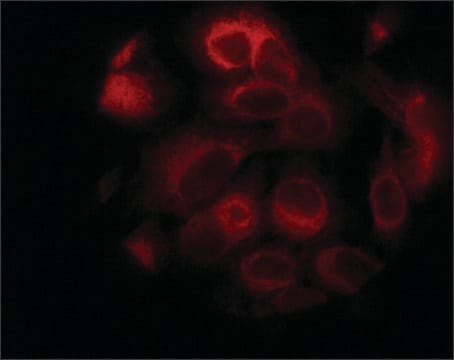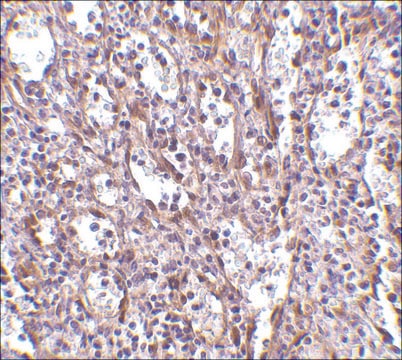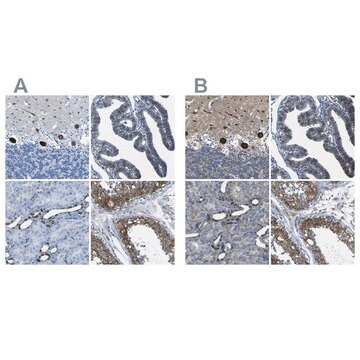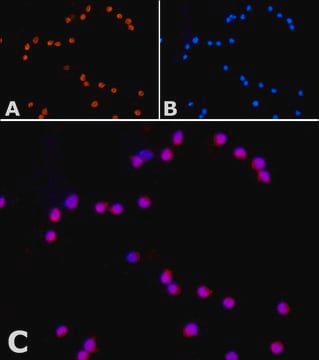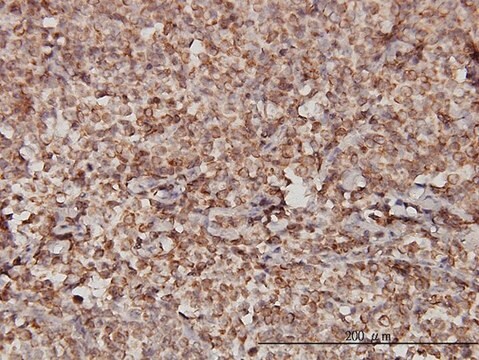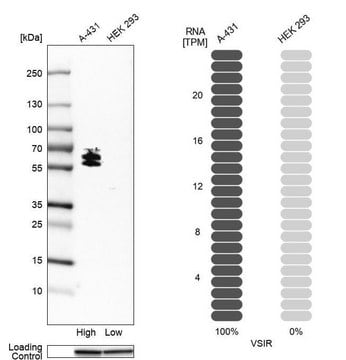S6072
Anti-STIM1 (N-terminal) antibody produced in rabbit

~1 mg/mL, affinity isolated antibody, buffered aqueous solution
Synonym(s):
STIM1 Antibody - Anti-STIM1 (N-terminal) antibody produced in rabbit, Stim1 Antibody, Anti-GOK, Anti-Stromal interaction molecule I
About This Item
Recommended Products
biological source
rabbit
Quality Level
conjugate
unconjugated
antibody form
affinity isolated antibody
antibody product type
primary antibodies
clone
polyclonal
form
buffered aqueous solution
mol wt
antigen 90 kDa
species reactivity
rat, mouse, human
enhanced validation
independent
Learn more about Antibody Enhanced Validation
concentration
~1 mg/mL
technique(s)
immunoprecipitation (IP): 2.5-5 μg using extracts of rat PC12 cells.
indirect immunofluorescence: 5-10 μg/mL using human HeLa cells.
western blot: 2-4 μg/mL using whole extract of mouse 3T3 cells.
UniProt accession no.
shipped in
dry ice
storage temp.
−20°C
target post-translational modification
unmodified
Gene Information
human ... STIM1(6786)
mouse ... Stim1(20866)
rat ... Stim1(117086)
Related Categories
General description
Immunogen
Application
- western blotting
- immunoprecipitation
- immunofluorescence
Biochem/physiol Actions
Physical form
Disclaimer
Not finding the right product?
Try our Product Selector Tool.
related product
Storage Class Code
10 - Combustible liquids
Flash Point(F)
Not applicable
Flash Point(C)
Not applicable
Personal Protective Equipment
Certificates of Analysis (COA)
Search for Certificates of Analysis (COA) by entering the products Lot/Batch Number. Lot and Batch Numbers can be found on a product’s label following the words ‘Lot’ or ‘Batch’.
Already Own This Product?
Find documentation for the products that you have recently purchased in the Document Library.
Customers Also Viewed
Our team of scientists has experience in all areas of research including Life Science, Material Science, Chemical Synthesis, Chromatography, Analytical and many others.
Contact Technical Service